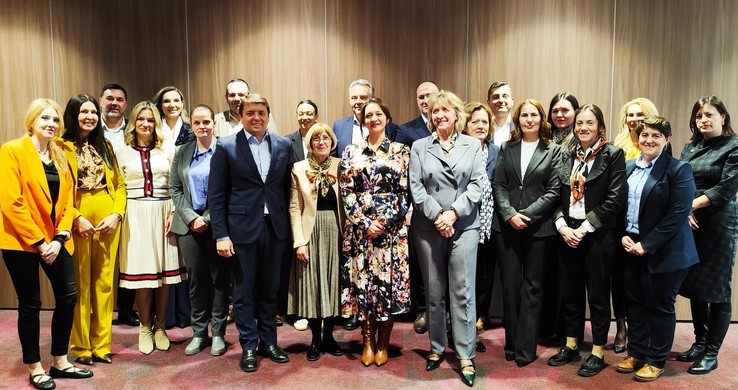In a continued effort to enhance the application of human rights standards in jurisprudence of the Constitutional Court of Montenegro, a working meeting was organised with the aim to address complex legal issues that often result in varying interpretations of constitutional rights.
The event, held in Podgorica, brought together primarily legal advisers of the Constitutional Court to engage in an in-depth discussion on the practical application of relevant human rights standards. Particular emphasis was placed on issues such as the right to a trial within a reasonable time, the right to compensation, and the effectiveness and enforceability of the Constitutional Court’s decisions.
A central theme of the meeting was the legal impact and implementation of the Court's rulings—an area increasingly seen as vital for ensuring legal certainty and safeguarding human rights at the national level. Special attention was given to application of Article 67 of the Law on the Constitutional Court, concerning situations in which individual rights have been violated by final legal acts based on laws or regulations subsequently found unconstitutional.
To address this legal issue, a comprehensive analysis titled “Application of Article 67 of the Law on the Constitutional Court of Montenegro” was presented. The document offers a comparative assessment of legislative practices across EU member states and countries in the region, providing crucial insights into the effects and roles of constitutional justice within different national legal systems.
Ms Snežana Armenko, the President of the Constitutional Court of Montenegro emphasized the Court’s strong commitment to aligning its practices with the relevant standards established by the European Court of Human Rights (ECtHR). She also underscored the value of peer-to-peer learning, noting that, with the support of consultants, the opportunities are provided to examine and draw from the jurisprudence of other legal systems with comparable frameworks.
The meeting marks another step forward in supporting the Constitutional Court of Montenegro’s efforts to align its practices with international human rights standards and reinforce its role as a guarantor of constitutional order and individual rights.
This initiative is supported in the framework of the action “Strengthening accountability of the judicial system and enhancing protection of victims’ rights in Montenegro”, a part of the joint European Union and Council of Europe programme “Horizontal Facility for the Western Balkans and Türkiye” which is enabling the Beneficiaries to meet their reform agendas in the fields of human rights, rule of law and democracy and to comply with European standards.



